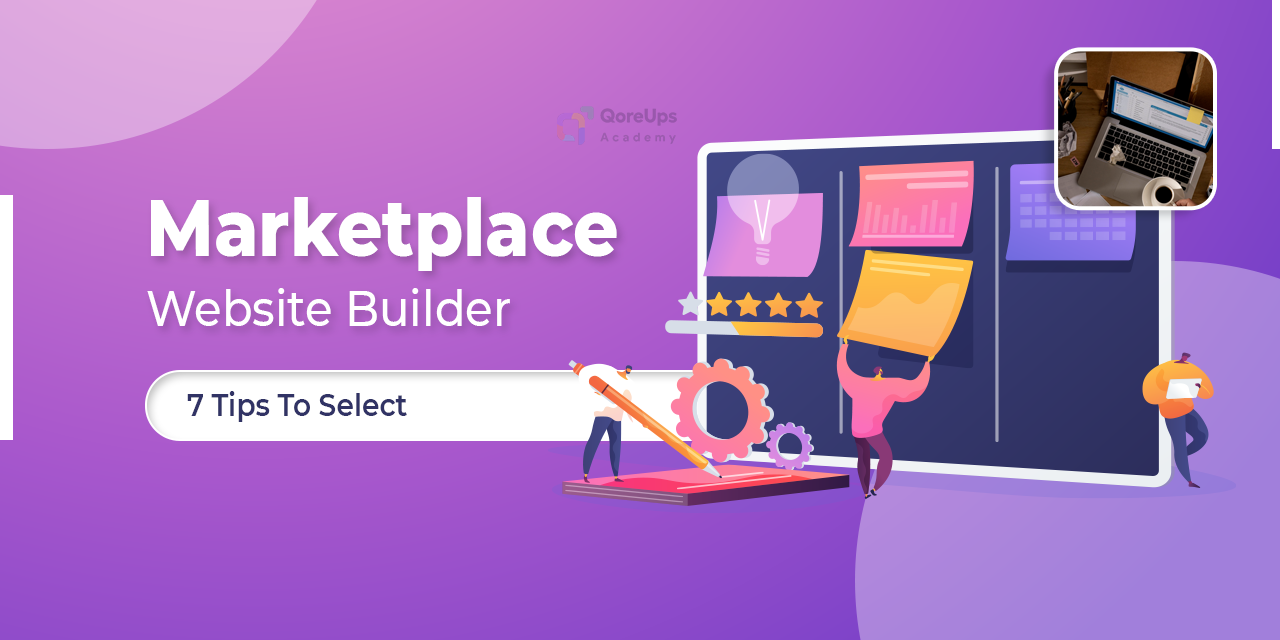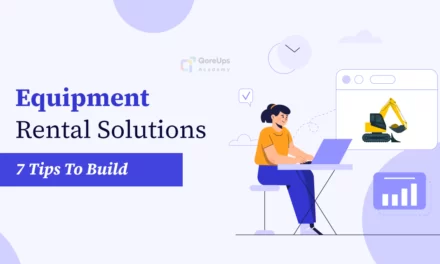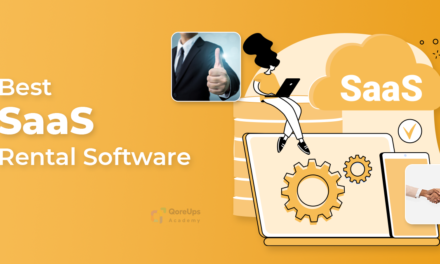Creating and launching your online marketplace is quite challenging.
Wish to create a marketplace website for selling, freelancing services, or facilitating the exchange of goods?
You need the right marketplace website builder that help you to do this.
Choosing the perfect marketplace website builder that satisfies your needs is akin to laying the cornerstone of your digital world.
It’s the foundation, where your marketplace platform will thrive, grow, and evolve.
With the sea of options available, it’s confusing, right?
Don’t worry! In this guide, we’ll explore the seven key tips to select the right marketplace website builder.
Let’s build something extraordinary together.
Know What You Want: Define Your Requirements
Before exploring the sea of marketplace website builders, take some time to outline your specific requirements and objectives.
Consider the following factors when drafting your requirements.
- Type Of Products Or Services You’ll Be Offering
- Scale Of Your Marketplace
- Your Budget
- Any Unique Features You Require.
By doing so you can streamline your selection process and focus on platforms that align with your goals.
For example, Let’s imagine you are planning to create a marketplace for vintage clothing.
Here you have to prioritize features such as advanced search filters, customizable templates, and seamless integration with popular payment gateways.
On the other hand, if you’re launching a broad-based marketplace for various products, scalability and ease of use might be your primary considerations.
This way you can define your requirements for a marketplace site builder.
Growth Without Limits: Scalability
At first, you’ll start as an MVP marketplace, but as your customer base grows you need to expand your marketplace also.
Thus, look for a marketplace website builder who supports you no matter what your customer base is.
Consider the following factors when looking for a scalable marketplace website builder.
- Scalability Features
- Allowing You To Easily Expand Your Site’s Functionality
- Accommodate Increased Traffic
- Add New Features As Your Business Evolves
- Platform’s Performance Capabilities
- Load Balancing And Caching Mechanisms
- Responsive And Reliable During Peak Usage Periods
Scalability is essential for long-term success and sustainability.
Choose a platform that provides flexible pricing plans or modular features, allowing you to scale up or down based on your needs and budget.
Craft Your Marketplace: Customization Options
To attract users your marketplace should reflect your brand identity and provide a unique user experience.
Choose a website builder marketplace that offers robust customization options.
Consider the following factors when looking for a marketplace website builder with a customization option.
- Ability to personalize themes, layouts, colors, fonts, and more.
- Ability to customize the HTML, CSS, and Javascript code.
- Ability to integrate third-party APIs.
This flexibility will enable you to create a visually stunning and cohesive marketplace that stands out.
Also, this allows you to extend the functionality of your marketplace with additional features and tools.
Mobile-Friendly Design: Support All Platforms
70% of the users access marketplace websites from mobile devices.
So, make sure your marketplace is mobile-friendly.
Opt for a B2B marketplace builder that prioritizes responsive design, ensuring your site looks and functions seamlessly across various screen sizes and devices.
A mobile-friendly marketplace will enhance user experience and maximize engagement.
- Check whether the platform offers mobile-responsive templates or themes,
- mobile app support, or progressive web app capabilities, which can further enhance your users’ mobile experience.
Secure And Trustable: Payment Processing Integration
Smooth and secure payment processing is essential for any online marketplace.
Choose a website builder that integrates with reliable payment gateways and supports multiple payment methods, such as credit/debit cards, digital wallets, and bank transfers.
Also, ensure that the platform offers robust security features to protect sensitive customer information and transactions.
Look for platforms that support popular payment gateways like PayPal, Stripe, or Razorpay, as well as regional payment methods that are relevant to your target audience.
Consider whether the platform provides
- Built-In Tools For Managing Transactions,
- Handling Refunds And Disputes,
- Generating Financial Reports For Accounting Purposes.
Clear, Concise, Clever: User-Friendly Interface
Building and managing your marketplace should be intuitive and straightforward.
Look for an online marketplace website builder with a user-friendly interface and intuitive drag-and-drop functionality, allowing you to easily create and customize your site without needing extensive technical knowledge.
A streamlined interface will save you time and frustration, enabling you to focus on growing your business.
Test out the platform’s user interface through a demo or trial version, and evaluate how easy it is to navigate and perform common tasks such as adding products, managing orders, and configuring settings.
Consider whether the marketplace website software
- Pick a builder that’s easy to understand and navigate. Simple interfaces mean less time figuring things out and more time building your marketplace.
- Choose a builder where you can move things around by just dragging and dropping. It’s like arranging furniture in a room – easy and intuitive.
- Make sure there’s clear help available if you get stuck. Good support means you can get answers fast and keep moving forward with your marketplace.
Cost & Value: Is It Worth Investing In?
When assessing the cost and value of an online marketplace website builder, it’s crucial to look beyond the initial price tag.
Some platforms offer free plans with limited features, while others require a subscription or one-time payment for more options.
So, you should consider various factors to ensure that you’re getting the best value for your budget.
- Consider what you pay upfront.
- Additional Fees for premium features
- Feature Set you get for the price.
- Transparent Pricing
- Flexible Payment Options
Ultimately, aim for a builder that offers the best value for your money. That means getting quality features and support for a fair price.
So Finally,
Choosing the right website builder for your online marketplace is a crucial step that determines success.
It’s about more than just launching a marketplace website.
It’s about setting the stage for future growth and ensuring that your marketplace can evolve with your business.
Take your time to evaluate different builders, focusing on those that offer flexibility, user support, and features that align with your vision and needs.
The right choice will help you build a marketplace that’s not just functional but also engaging and tailored to your audience.
As you make this important decision, stay focused on your long-term goals and choose a platform that will support your business as it expands.
With the right tools and a clear strategy, you’re well on your way to creating a thriving online marketplace. Good luck!






